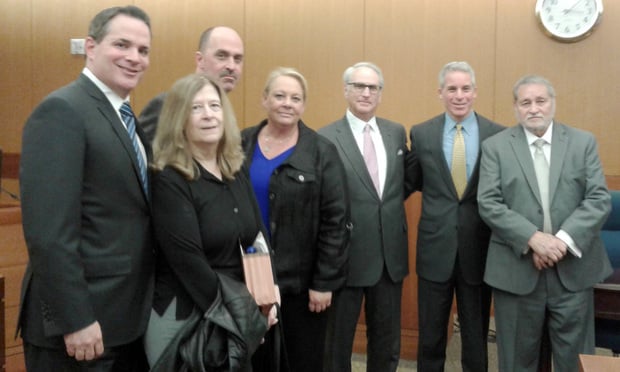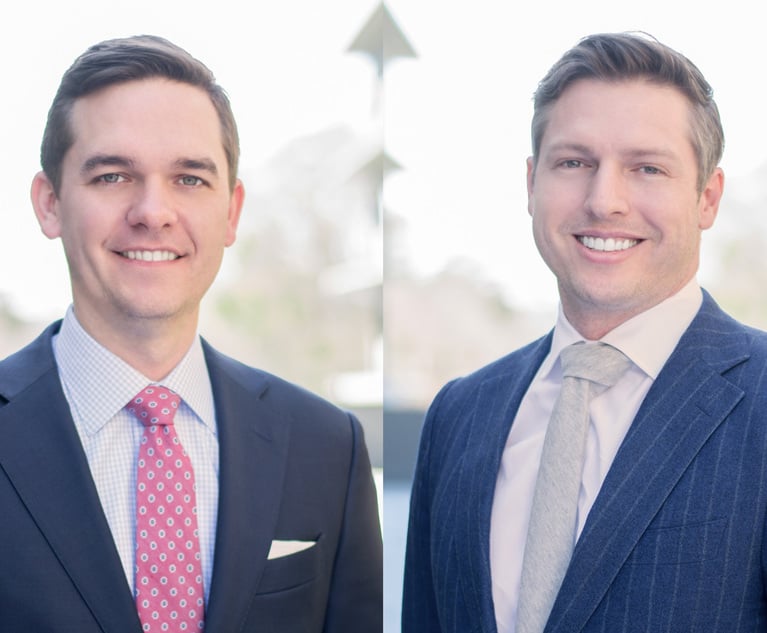After about seven hours of deliberations, a Fulton County jury returned a defense verdict in the case of a two lawyers and their client accused of illegally recording Waffle House Chairman Joe Rogers Jr. as he engaged in a sex act with the woman.
The decision followed a seven-day trial of Rogers’ former housekeeper, Mye Brindle, and her former lawyers, Johns Butters and David Cohen.

 After their win (from left): defendant David Cohen, consultant Trish Renaud, lawyer Reid Thompson, defendant Mye Brindle, lawyers Bruce Morris, Brian Steel and Jimmy Berry. Defendant John Butters is not pictured. (Photo: Greg Land/ALM)
After their win (from left): defendant David Cohen, consultant Trish Renaud, lawyer Reid Thompson, defendant Mye Brindle, lawyers Bruce Morris, Brian Steel and Jimmy Berry. Defendant John Butters is not pictured. (Photo: Greg Land/ALM)








